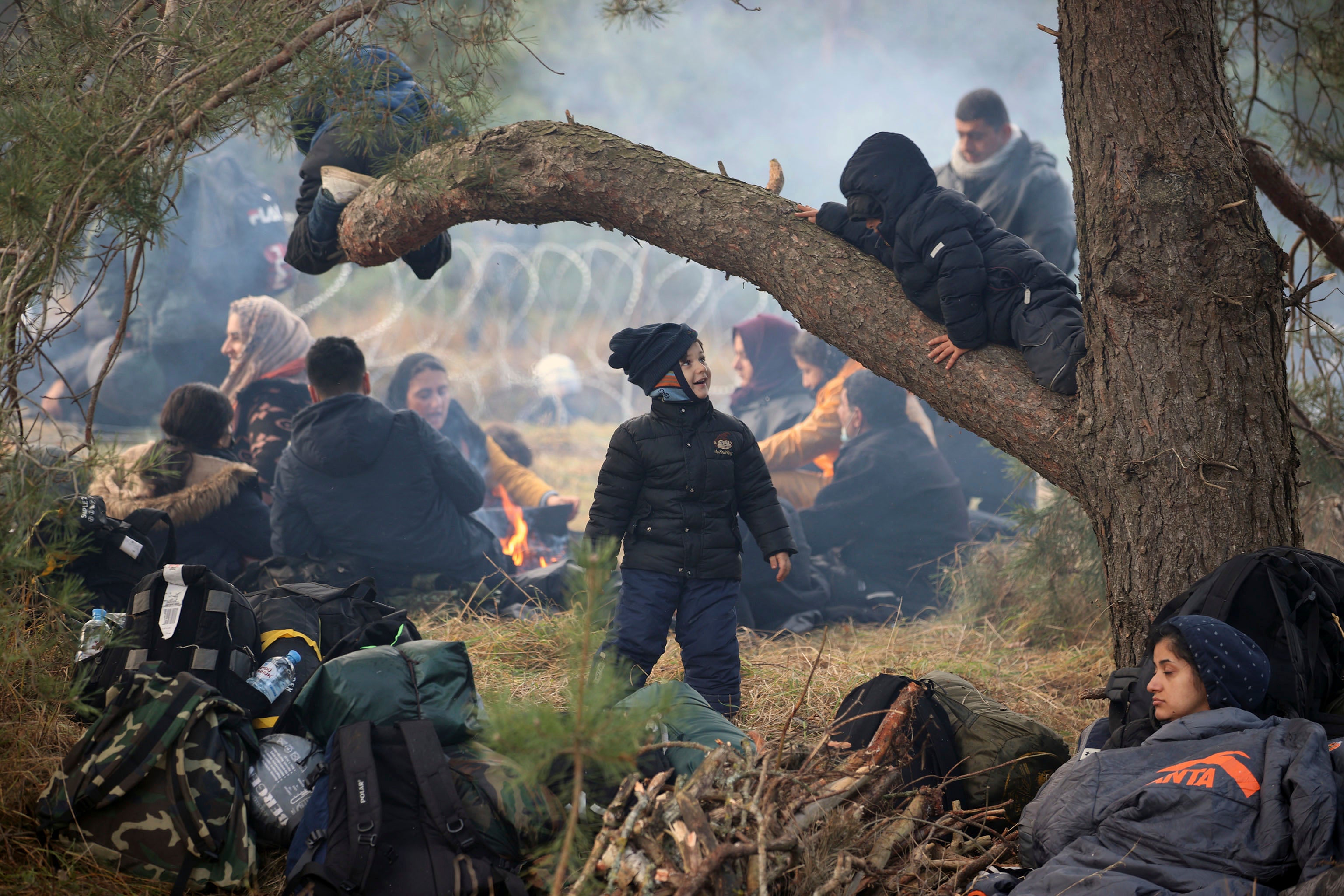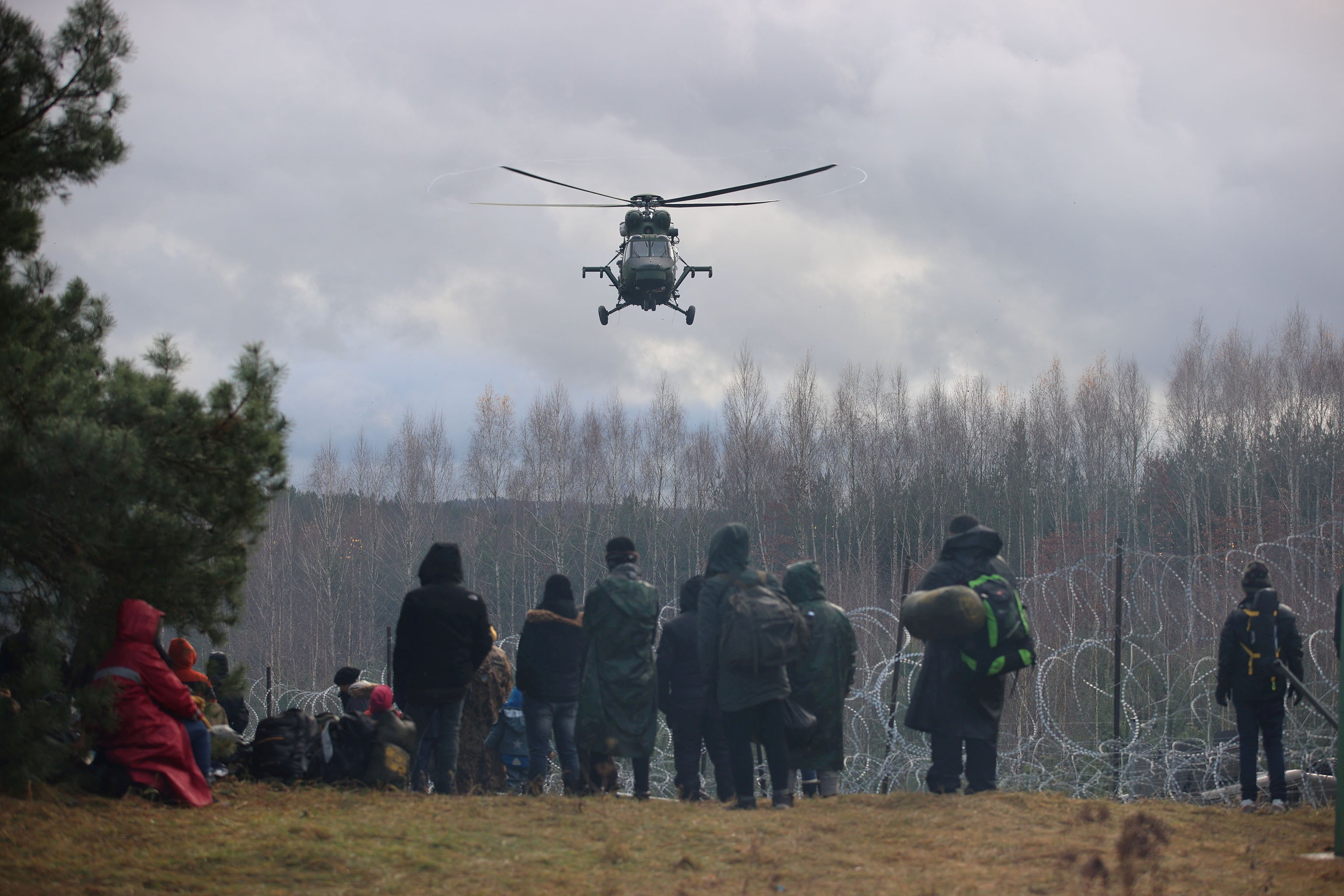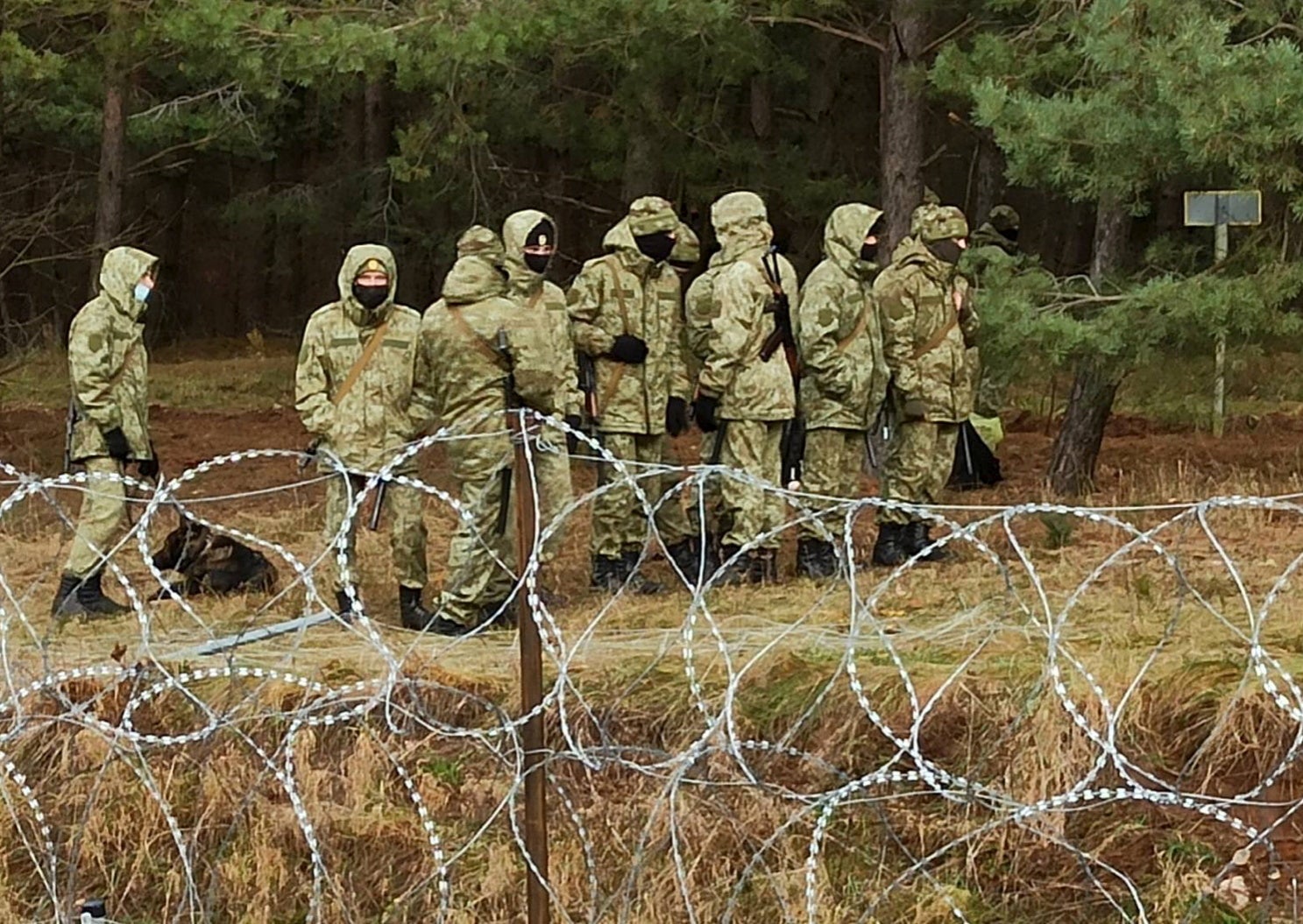Poland blames Belarus for ‘manufactured’ migrant crisis as thousands try to cross into EU
Warsaw’s foreign minister has accused Minsk of risking lives

Poland scrambled 12,000 troops and an anti-terror squad to its border on Monday to block the passage of migrants it claims were sent by the Belarusian regime.
Footage from the morning showed a column of perhaps 2,000, mostly Kurdish migrants, women and children included, making their way towards the Polish border at Kuznica.
By late afternoon, videos were showing a tense showdown with soldiers, with rocks being thrown in one direction and tear gas in the other. There were several attempts to cross the border with force.
Early reports suggesting that at least part of the group managed to break through appear premature.
It is the largest and most violent episode of a manufactured migrant crisis which is exacerbating difficult relations between Europe and Belarus.
Europe accuses authoritarian leader Alexander Lukashenko of organising migrant flows from the Middle East to western borders in his attempt to wreak revenge for sanctions.
On Monday, defence minister Mariusz Blaszczak said the Polish army had been put on a state high alert. Deputy foreign minister Piotr Wawrzyk, meanwhile, warned that the standoff could end with people dying.
In response, the Belarusian border service accused the Poles of “inhuman treatment... provoking migrants to commit such a desperate step”.

It is unclear what precise role Minsk played in the events leading to the armed showdown. Video interviews suggested at least some of the migrants resolved to travel to the border themselves – with the aim of claiming asylum at the border crossing. The prospect of an oncoming winter likely strengthened their intentions.
But Belarusian troops appear to have assisted the crisis, diverting the migrants away from the official crossing points to the adjacent woods – and an unofficial showdown. It is also implausible that Belarusian security services did not notice thousands of migrants making their way from Minsk to the border.
Monday’s showdown is not an unexpected escalation of a crisis which has been months in the making. Migrants first began appearing on Europe’s borders over the summer following thinly veiled threats by Mr Lukashenko about migrant and drug flows to Europe. Belarusian state tourism firms are understood to have played a prominent role promoting Minsk in the Middle East as a stepping-stone migrant destination before Europe.
Poland, Lithuania and Latvia say Belarusian authorities have chaperoned dozens of migrants to unofficial crossing points at the EU border every day. Over the past 24 hours, the number of illegal crossings reportedly climbed to to 222. Many of the migrants remain in the woods in no-man’s land because Belarusian authorities refuse to let them return.
One explanation for the Monday operation is that Mr Lukashenko is looking for ways to extract leverage in negotiations with Europe. The contested leader remains ostracised in the west following his disputed 2020 election “victory”, the subsequent merciless crackdown, and the hijacking of a Boeing 737 in May. But there appears little prospect that the EU will now step back from plans to introduce a fifth round of sanctions this month.

It is also unclear if Mr Lukashenko had the Kremlin’s backing in provoking a risky armed showdown with the EU on its eastern borders.
At his daily press conference with journalists, Vladimir Putin’s spokesperson Dmitry Peskov said Belarus had “a large weight on its shoulders” with the world watching.
“We have no doubt that the migration services of Belarus will do everything they can to keep the situation in legal check,” he said.
Join our commenting forum
Join thought-provoking conversations, follow other Independent readers and see their replies
Comments


Bookmark popover
Removed from bookmarks